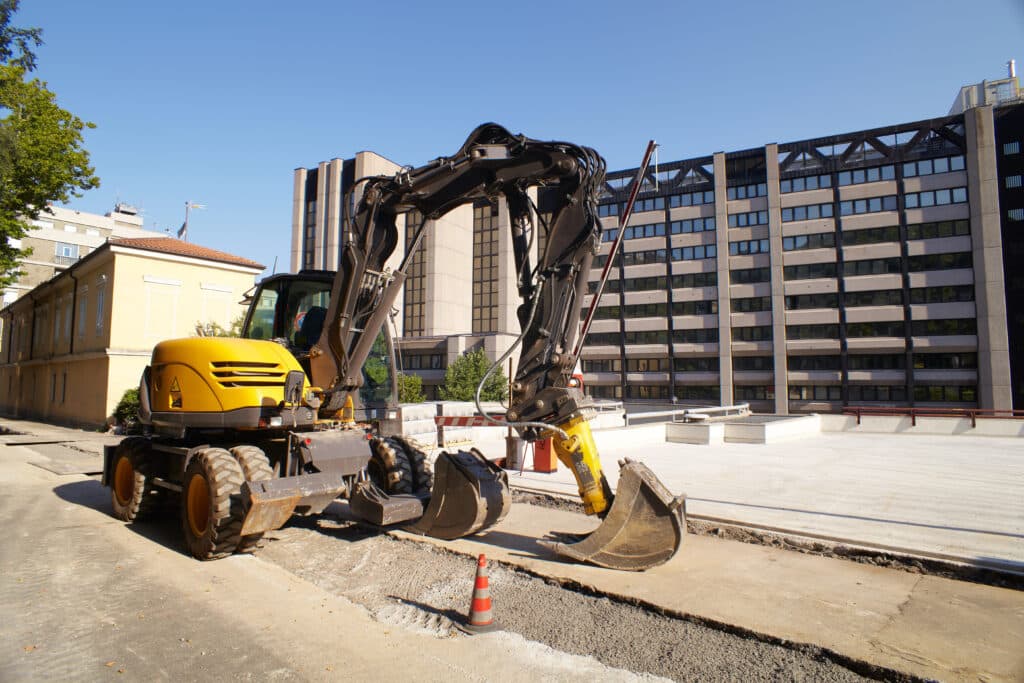
The construction industry is undergoing a major transformation. From digital advancements and sustainability initiatives to rising labor costs and shifting client expectations, the landscape is changing rapidly. For construction companies large and small, staying competitive means embracing innovation, adapting operations, and making smart financial decisions. In this article, we’ll explore practical strategies that can help your construction business stay ahead in a fast-paced industry.
1. Embrace Construction Technology

One of the most effective ways to gain a competitive edge is to adopt modern construction technology. Tools like Building Information Modeling (BIM), drones, 3D printing, and cloud-based project management software are reshaping how construction projects are planned and executed.
These technologies not only help improve accuracy and reduce errors but also streamline communication between teams, clients, and subcontractors. For example, BIM allows for better visualization and coordination, helping to identify design conflicts before they become costly on-site issues.
Staying current with these innovations and investing in proper training can set your company apart and demonstrate your commitment to efficiency and quality.
2. Invest in Skilled Labor and Ongoing Training

The shortage of skilled labor remains a significant challenge in the construction industry. While finding experienced workers is important, retaining them is equally crucial. A competitive business values its workforce and prioritizes ongoing training and development.
Encouraging certifications, safety courses, and apprenticeships not only enhances worker skills but also boosts job satisfaction and loyalty. This investment can lead to increased productivity, reduced turnover, and higher-quality results on the job site.
By positioning your company as one that values education and safety, you can attract top talent and build a reputation as a desirable employer.
3. Streamline Operations and Improve Project Management

Efficient operations are a cornerstone of a competitive construction business. Projects that run over budget or behind schedule can damage your bottom line and reputation. That’s why effective project management is critical.
Utilizing integrated project management software helps ensure that all moving parts from scheduling and budgeting to resource allocation are aligned. Real-time communication tools and mobile apps can keep field and office teams connected, improving decision-making and accountability.
By refining your internal processes, your company can deliver projects more reliably and maintain strong client relationships, which is essential for repeat business and referrals.
4. Lease Modern Construction Equipment to Stay Agile

Heavy equipment is a major investment, and owning outdated machinery can hinder productivity and increase maintenance costs. That’s where equipment leasing comes into play.
Opting for a modern construction equipment lease allows companies to access the latest machinery without the significant upfront cost of purchasing. Leasing provides flexibility, you can scale your equipment fleet up or down depending on the project’s needs, and often enjoy lower maintenance expenses since leased equipment tends to be newer and under warranty.
In a competitive market, having access to cutting-edge equipment can boost efficiency, improve job site safety, and enhance project outcomes. Leasing also helps preserve cash flow and frees up capital for other strategic investments, like hiring or technology upgrades.
5. Build Strong Industry Relationships and Partnerships

In construction, success often hinges on relationships. Whether it’s working with reliable subcontractors, sourcing materials from trusted suppliers, or staying connected with local regulatory agencies, strong partnerships are key to long-term growth.
Networking within your local and regional construction communities can help uncover new business opportunities, provide insight into industry trends, and offer collaborative solutions to common challenges. Maintaining a reputation for professionalism and reliability will also position your business favorably in competitive bidding situations.
Trust and communication are invaluable assets in any partnership, and nurturing these relationships can be just as important as technical expertise.
Conclusion
The construction industry is evolving quickly, and companies that adapt will continue to thrive. Embracing technology, investing in skilled labor, streamlining operations, exploring modern construction equipment lease options, and cultivating strong relationships are all essential components of a competitive strategy.
By staying agile, forward-thinking, and responsive to change, your business can not only meet today’s demands but also prepare for the opportunities of tomorrow. Now is the time to take proactive steps that will set your company apart in an industry that never stops building.
- 0shares
- Facebook0
- Pinterest0
- Twitter0



